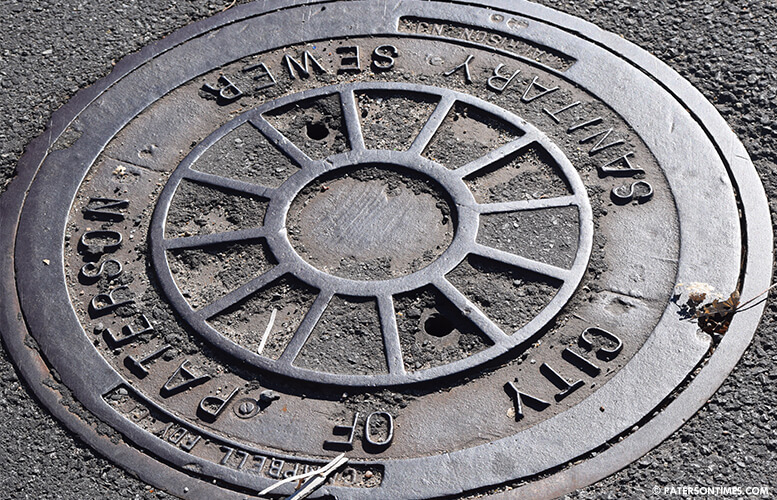Paterson considers imposing $3,100 sewer connection fee on new constructions
By Jayed Rahman
Published: May 23, 2018

Mayor Jane Williams-Warren’s administration proposed a measure to the city council on Tuesday night that imposes a minimum $3,100 sewer connection fee on new home constructions.
Under the ordinance a newly constructed single-family detached house will have to pay $3,157 in sewer connection fee. A multi-family with three units pays $9,472, according to the ordinance before the council.
Non-residential constructions will pay based a calculation on anticipated gallons per day of wastewater flow. For example, a 20,000 square feet office building or shopping center with a projected flow of 0.1 gal/sf/day will pay $23,829 in sewer connection fees, according to the ordinance.
Finance director Marge Cherone said the fees will generate $3 million in revenue every year. She told incredulous council members 1,000 new construction certificate of occupancies are issued every year.
“This would be an infusion into our budget. Our taxpayers have been carrying the burden of our sewer tax fees and it doesn’t cover our Passaic Valley Sewage Commission bills,” said Williams-Warren. “I saw this as a revenue generating connection fee. Hopefully, infusing our budget with money will help us in repairing and replacing our sewers.”
The city needs millions of dollars to address its combined sewer system which releases sewage into the Passaic River during storms. The city has incurred $66.3 million in sewer repair costs since 1998, according to a calculation attached to the ordinance. Funds generated through the fee will be used to defray the cost of repairs for the sewer system.
Council members were divided on imposing the new fee.
Kenneth Morris, councilman at-large, said this will increase cost of doing business for developers. He criticized the New Jersey Department of Community Affairs (DCA) for trying to impose a new fee on taxpayers.
“All their recommendations seem to assess Paterson taxpayers or people doing business in Paterson. So, there’s a cost to them,” said Morris. “They never make a no cost recommendation.” He said the state fails to work with the city to reform civil service, binding arbitration, and labor contracts.
The measure cuts the fee by 50-percent for nonprofit organizations. Morris wanted a similar discount for someone, who has owned a home in the city for five years, undertaking a new construction to move his primary residence.
“We can look at that,” said business administrator Nellie Pou. She said the council will be provided a revised ordinance next week.
“I don’t understand how this will boost economic development. I just don’t like it,” said Michael Jackson, 1st Ward councilman.
“What is the fee now?” asked William McKoy, 3rd Ward councilman. There is no connection fee, but there’s a $200 application fee for sewer permits, said officials.
McKoy said the new fee could make doing business in the city “cost prohibitive.”
“This may tell them to build somewhere else,” said McKoy. He pointed out the ordinance does not list calculation formulas for car washes, laundromats, and factories.
“This is going to put us at a disadvantage,” added Alex Mendez, councilman at-large.
Douglas Triplett of PKF O’Connor Davies, a consulting firm hired in 2016 to identify new revenue sources for the financially struggling city, said neighboring Clifton has a similar fee. He said Jersey City and Newark have sewer connection fees as well.
Triplett said Newark charges $3,100 for a singly family home. He did not have a figure for Jersey City because of the way the Hudson County municipality calculates the fees, but said average sewer connection fee is $3,800.
“When will the surrounding towns pay their full fees?” McKoy demanded to know before imposing a fee on local taxpayers.
For decades, Paterson taxpayers have been subsidizing the sewer bills of Clifton, Haledon, Totowa, Woodland Park, and Prospect Park. In 2016, the city sent bills seeking to the neighboring towns demanding they pay their “fair” share.
“Some of them have paid us in full,” Pou revealed at the meeting on Tuesday night. She did not have a list of the towns that have paid on hand.
Cherone said the smaller towns have paid. However, bigger towns like Clifton haven’t, she said.
Some council members agreed with imposing the fee.
“I think it’s time. This is something we’ve been looking for,” said Maritza Davila, councilwoman at-large.
Shahin Khalique, 2nd Ward councilman, agreed with Davila.
Email: [email protected]